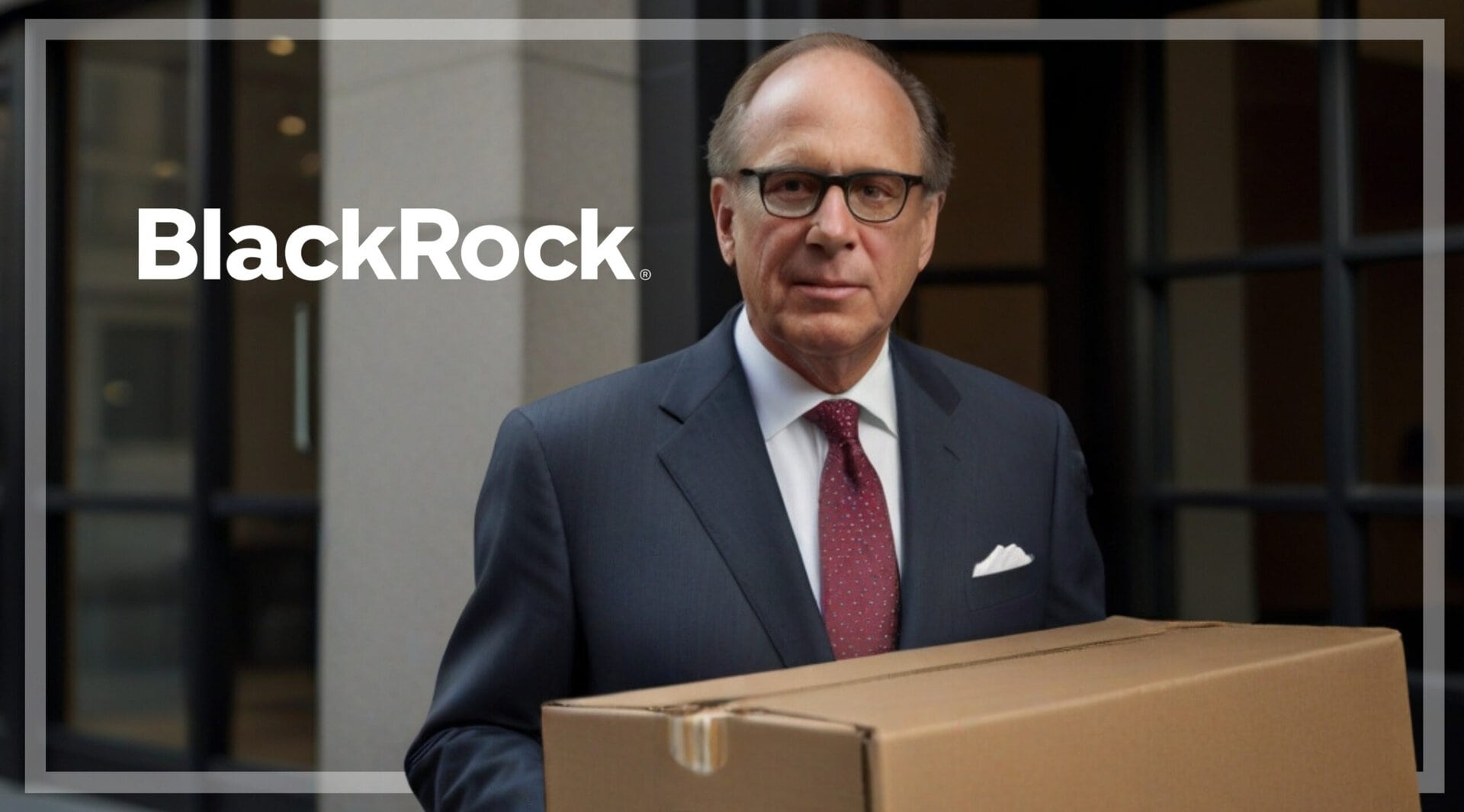BlackRock chairman and CEO, Larry Fink, recently addressed questions about what the future of the world’s largest money manager would look like when he steps back from leading the company. Speaking at an Axios-organised event in Washington in July, Fink reaffirmed his commitment to readying the next generation of leaders at the firm he co-founded, stating that he does not intend to stand in their way.
“When I do believe the next generation is ready, I’m out,” Fink declared. “I may be out as a CEO, I may stay as a chairman, but I’m not going to be a blocker,” he noted, emphasising: “As a founder of my company, I am passionate about having the next generation running it.”
Debates On Succession
Admittedly, Fink has not expressed any plans to leave the firm and, at 71 years of age, is considerably younger than other equally prominent founder CEOs in finance such as Warren Buffett, who is 93.
That said, Fink’s recent remarks about succession planning at BlackRock have revived debates on who his likely successor could be and what direction they will take the firm. Fink has frequently discussed succession planning in meetings with insiders, highlighting it as a top priority for him along with co-founder and President Robert Kapito.
According to the Wall Street Journal, Fink has indicated that he “would prefer to not be at BlackRock in his late 70s”. Together with Kapito, he has been grooming several insiders in key leadership positions to potentially take over his role as CEO. They’re preparing these candidates for what Fink called the “The Great Race” to choose his successor, which he describes as the “No. 1 priority.”
Fink and Kapito indicated that their aim with grooming the senior executives was to cultivate a spirit of collaboration rather than competition. The candidates include:
● Mark Wiedman, head of the global client business
● Rob Goldstein, Chief Operating Officer
● Martin Small, Chief Financial Officer
● Rachel Lord, head of international and a member of the firm’s global executive committee
Salim Ramji, who formerly headed BlackRock’s ETFs and indexing products, was also reportedly on the list. However, this July, Ramji joined rival money manager Vanguard, which manages $9 trillion in assets, to serve as CEO, replacing Tim Buckley, an insider who enjoyed a largely successful tenure from 2018 having joined the company in 1991 as an assistant to the founder John Bogle, and rose through the ranks.
What CEO Succession Could Mean for Blackstone, BlackRock, and JPMorgan https://t.co/9WiGvNfaL9
— Barron's (@barronsonline) June 7, 2024
Maintaining Legacy Of Strong Returns
While BlackRock might consider external candidates for leadership when Fink steps down, founder CEOs typically favour internal successors when they step down. This suggests that Mark Wiedman, Rob Goldstein, Martin Small, and Rachel Lord are strong contenders, given their extensive experience within the firm.
So who is likely to be successful? Each candidate brings a unique leadership style, but the one who ultimately gets the job must prove to the board and shareholders that they can uphold Fink’s legacy of delivering robust returns.

Source; BlackRock
BlackRock’s consistent ability to provide attractive returns, both through stock price appreciation and dividends, has made Fink a favourite among investors. As of the first quarter of 2024, BlackRock reported a record $10.6 trillion in assets under management (AUM), driven by strong market performance and substantial net inflows of client funds. Strong returns are what set BlackRock apart; maintaining this track record will be crucial for the next leader.
Navigating Political Sensitivies ESG
Fink’s legacy extends well beyond financial performance and shareholder returns. Under his leadership, BlackRock has emerged as a vocal and influential advocate for environmental, social, and governance (ESG) investing, with Fink often using his annual letters to CEOs to champion greater corporate responsibility.
Additionally, BlackRock’s extensive portfolio, which includes significant holdings in government bonds, equities, and other securities, has enabled the firm to exert considerable influence on both governments and corporations. This influence has been leveraged to advocate for the adoption of policies that promote sustainability.
This proactive stance has established BlackRock as a leader in sustainable investing. Whoever takes over from Fink, will have the crucial task of ensuring the firm remains at the forefront in this area.
However, it’s worth highlighting that ESG investing has become a politically charged issue, particularly in the United States. This underlines the need for Fink’s successor to possess strong political instincts.
Fink and BlackRock have found themselves on the receiving end of scathing political attacks and endless conspiracy theories due to their involvement in ESG investing. Critics, especially from conservative circles, accuse BlackRock of pushing a “woke” agenda that prioritises social and environmental issues over economic performance.
Adding to the controversy is the number of companies that have been accused of paying lip service to ESG investing or “greenwashing” – falsely presenting themselves as environmentally friendly or socially responsible to attract investors who prioritise sustainability.
Critics argue that, although they are willing to borrow nomenclature from ESG investing, these companies have no serious thought of adopting ESG principles and policies. This has led to significant backlash and debates about the role of asset managers in addressing societal issues.
Whoever replaces Fink at the helm of BlackRock will need to demonstrate that they can deftly navigate the political sensitivities around ESG investing while still pursuing the agenda.
Confronting The Retirement Crisis
Fink’s successor will also face the critical task of advancing his primary agenda: addressing the retirement crisis. This issue is currently Fink’s top concern.
BlackRock released a survey earlier this year revealing that many U.S. workers and retirees are concerned about outliving their savings. The survey found that more than two-thirds of employed baby boomers desire education on retirement-income strategies well before they retire.
In his annual letter in March, CEO Larry Fink called on policymakers and corporate leaders to rethink how people save for and spend their money post-retirement. Fink questioned whether 65 should remain the conventional retirement age, citing advances in healthcare that increase life expectancy and, consequently, the need for more financial resources.
“By the mid-century mark, one-in-six people globally will be over the age of 65, up from one-in-11 in 2019. To support them, governments are going to have to prioritise building out robust capital markets like the U.S. has,” he wrote.
A staunch believer in capitalism and the power of capital markets, Fink’s successor will need to demonstrate they can advocate around these issues just as effectively and persuasively. “In my opinion, this is the most important lesson in recent economic history: Countries aiming for prosperity don’t just need strong banking systems — they also need strong capital markets. That lesson is now spreading around the world.”
BlackRock's Larry Fink warns of a retirement crisis: pic.twitter.com/kGqzyyadEL
— unusual_whales (@unusual_whales) April 7, 2024
While Fink continues to shape his legacy and has no immediate plans to leave BlackRock, his exceptional success is undeniable. His successor will undoubtedly have big shoes to fill.
Author: Acutel
We are global investors who invest in good companies at fair valuation and speculate on all else subject to the risk exposure we can afford.
The editorial team at #DisruptionBanking has taken all precautions to ensure that no persons or organisations have been adversely affected or offered any sort of financial advice in this article. This article is most definitely not financial advice.















